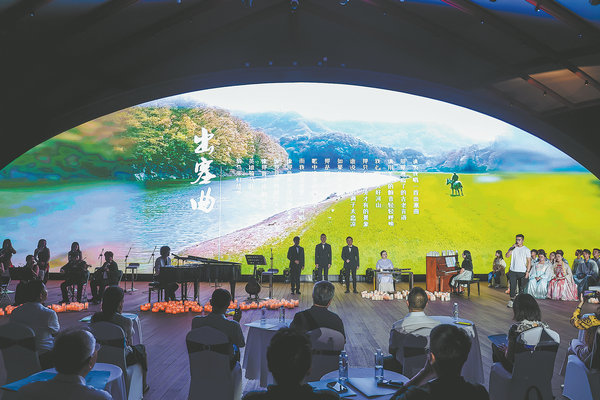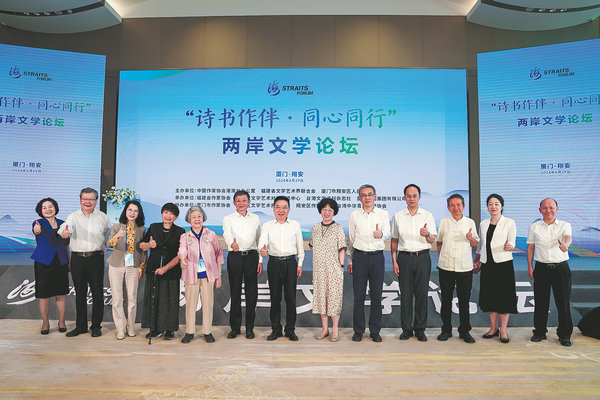

The families of Taiwan writers Yu Guangzhong (1928-2017) and Sanmao (1943-91), born as Chen Maoping and also known to the English-speaking world as Echo Chan, recently donated a selection of their manuscripts and other literary documents to the National Museum of Modern Chinese Literature in Beijing.
They made the donation when they attended a forum on June 29 to enhance literary ties across the Taiwan Strait in Xiamen, Fujian province, which was held as part of the Straits Forum, the largest grassroots cross-Strait exchange event.
It was the first literary event at the Straits Forum, which attracted 140 renowned writers from both sides, including Shu Ting, Zhang Xiaofeng and A Yi, as well as youth representatives from various universities.
Sanmao's younger brother Chen Chieh says that in his sister's short life, she wrote many books beloved by readers on both sides of the Strait.
"Sanmao loved traveling and writing; she cherished Chinese culture and left deep footprints on the Chinese mainland. This grand event is a rare opportunity to take her legacy home," Chen Chieh said of his sister, who was born and spent the first three years of her life in Chongqing until the family relocated to Taiwan in 1948.
Yu's daughter Yu Pei-san talked about her late father's great love for books. "Ever since I was a child, I would see him carefully wiping his books, again and again, using his clothes. He didn't care much about clothes, but books were especially precious.
"My father used to say that if we compare Chinese culture to concentric circles, the core would be Chinese culture while the radius would be the Chinese language. Wherever the Chinese language reaches, that's how far the circles extend. As long as the language survives, its spirit and culture will advance together, promoting one another."

Taiwan writer Chen Hsiu-Mei, whose pen name is Chen Ruoxi, recalls how she embarked on her literary journey and the profound influence a teacher from the Chinese mainland had on her. She says that she hopes her life story will help the younger generations open their minds and create their own literary connections.
According to Huang Wentao, deputy head of the Association for Relations Across the Taiwan Straits, the literary forum included a series of associated events, among which were discussions about writing novels and poetry, lectures and recitations of classical works.
From July 1 to Wednesday, writers and youth representatives from the Chinese mainland and Taiwan visited Nanjing, the provincial capital of Jiangsu province, to go to the museums and experience the city's natural and cultural landscapes.
Hu Bangsheng, Party group member of the China Writers Association, one of the organizers of the literary event, says that writers from both sides of the Strait share a profound literary tradition and have been enhancing exchange and mutual understanding of late.
He says that in hosting the event, the organizers were seeking to deepen the friendship between literary circles on both sides through the medium of Chinese culture to build an exchange platform and nurture young writers.
He adds that over the years, the China Writers Association has organized seminars and exchanged visits to promote literary connections between both sides of the Strait, and that the National Museum of Modern Chinese Literature has manuscripts and other literary documents belonging to 30 Taiwan writers. It has also carried out research and preservation in this regard.